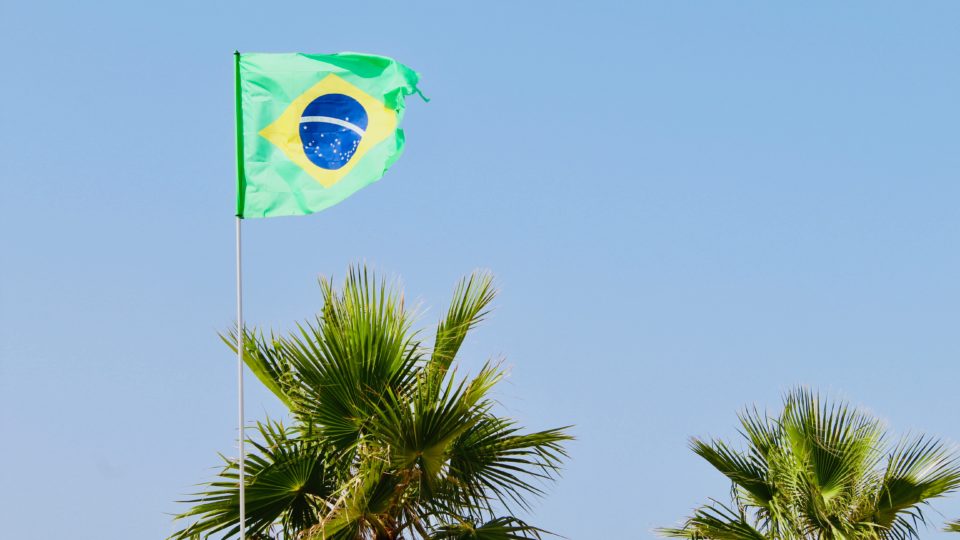
“We already support too many missionaries in Brazil.”
I vividly remember the conversation with a potential supporting pastor. I appreciated his honesty. He knew his people wouldn’t be excited about another missionary to Brazil. Perhaps you’ve noticed this, too. If a church has a missions map in their lobby, it probably has a lot of prayer cards and red yarn pointing to that largest country in South America.
So, if there are so many missionaries in Brazil, then why did I move my wife and two boys here? Isn’t Brazil already “reached”?
If you open Operation World, you’ll discover the surprising statistic that 91% of Brazilians are Christians.[1] That sounds encouraging until you keep reading and realize the vast majority of Brazilians—approximately 65% or 136 million of them—consider themselves Roman Catholic. Or perhaps you’ve heard that evangelicalism is growing rapidly in Brazil, making up 20% of the population.[2] That sounds encouraging, too, until you realize this includes some cults and liberal denominations who consider themselves evangelical but are in fact far from it.
Some missions agencies have redirected both people and funds away from Brazil to places of greater need. Unfortunately, decisions like this have consequences. As missionaries have left Brazilian seminaries and denominations, serious theological errors like liberalism and the prosperity theology have engulfed formerly solid churches.[3]
Yes, Brazil has a long history of missionaries. We ought to celebrate and learn from that rich heritage. But the need in Brazil remains great.
A BURNING QUESTION
Even so, some might wonder, shouldn’t we prioritize our resources on unreached people groups?
I’m thankful for the many organizations and churches that focus on establishing healthy churches among unreached people groups. But that doesn’t mean we should abandon other fields. In fact, I’m convinced we must work together; pioneer missionaries must partner with ministries that provide leadership training and deep discipleship.[4] If we neglect “reached” fields, we run the risk of creating new unreached people groups in just a few generations.
WHAT ABOUT BRAZIL?
So what’s the need in Brazil right now?
As has often been said, the missionary task is not to make converts, but to make disciples. When missionaries prioritize speed and numerical growth, they tend to produce vulnerable converts, weak churches, and syncretistic Christianity. Brazil is suffering from this well-intentioned approach. The church in Brazil is often a mile wide but only an inch deep. It’s fraught with all kinds of doctrinal errors and even heresies.
That’s the problem. But what do we do about it? In short, Brazil desperately needs missionaries who will focus on leadership training and deep discipleship. This method may produce slower growth and fewer numbers, but in the end it will build stronger and more sustainable churches.
EXCITING OPPORTUNITIES
Perhaps God is calling you to an unreached corner of the world. If so, hallelujah! Or perhaps what I’m describing resonates with your desire to train men for ministry. You might be wondering, How can I help?
First, we have an opportunity to set up training sites throughout Brazil. We’re currently equipping leaders in the states of Acre and Mato Grosso. We’re in the process of establishing sites in other states, too, such as Pará and Paraíba.
To equip the pastors in these locations, we need short-term teachers to provide practical and theological training. But we also need long-term missionaries who will learn the language and culture in order to provide deeper training over a longer period of time. We need missionaries willing to serve as mentors to these local pastors.
Second, we need long-term missionaries to help us lead our local church’s pastoral internship. We need men to invest in our interns and to start similar internship programs in other healthy churches throughout the country.
CONCLUSION
Some exciting work is happening in Brazil. I count it a privilege to serve local pastors by helping to meet the need for pastoral leadership training and deep discipleship. If you think God may be leading you to serve in Brazil, whether short-term or long-term, feel free to reach out to me at [email protected].
[1] Jason Mandryk, Operation World, seventh edition (Colorado Springs, CO: Biblica, 2010), 163.
[2] “The percentage of those who identified as evangelicals in Brazil has grown from 6.6 percent in 1980, to 22.2 percent in 2010.” See https://www.theatlantic.com/international/archive/2018/01/the-evangelical-takeover-of-brazilian-politics/551423/.
[3] David Bledsoe, “A Plea to Reconsider Theological Education Engagement in Historic Mission Fields,” Journal of Evangelism and Missions 8 (Spring 2009): 93-102.
[4] Benjamin Merkle calls for a “balanced approach to missions,” meaning missionaries “engage new people groups who have never heard the gospel of Jesus Christ” and focus on theological education which “helps the work of missions to bear fruit and endure.” Benjamin Merkle, “The Need for Theological Education in Missions: Lessons Learned from the Church’s Greatest Missionary,” The Southern Baptist Journal of Theology 94:4 (Winter 2005): 59.
Want More Content Like This?
We will deliver Reaching & Teaching articles and podcast episodes automatically to your inbox. It's a great way to stay on top of the latest news and resources for international missions and pastoral training.
